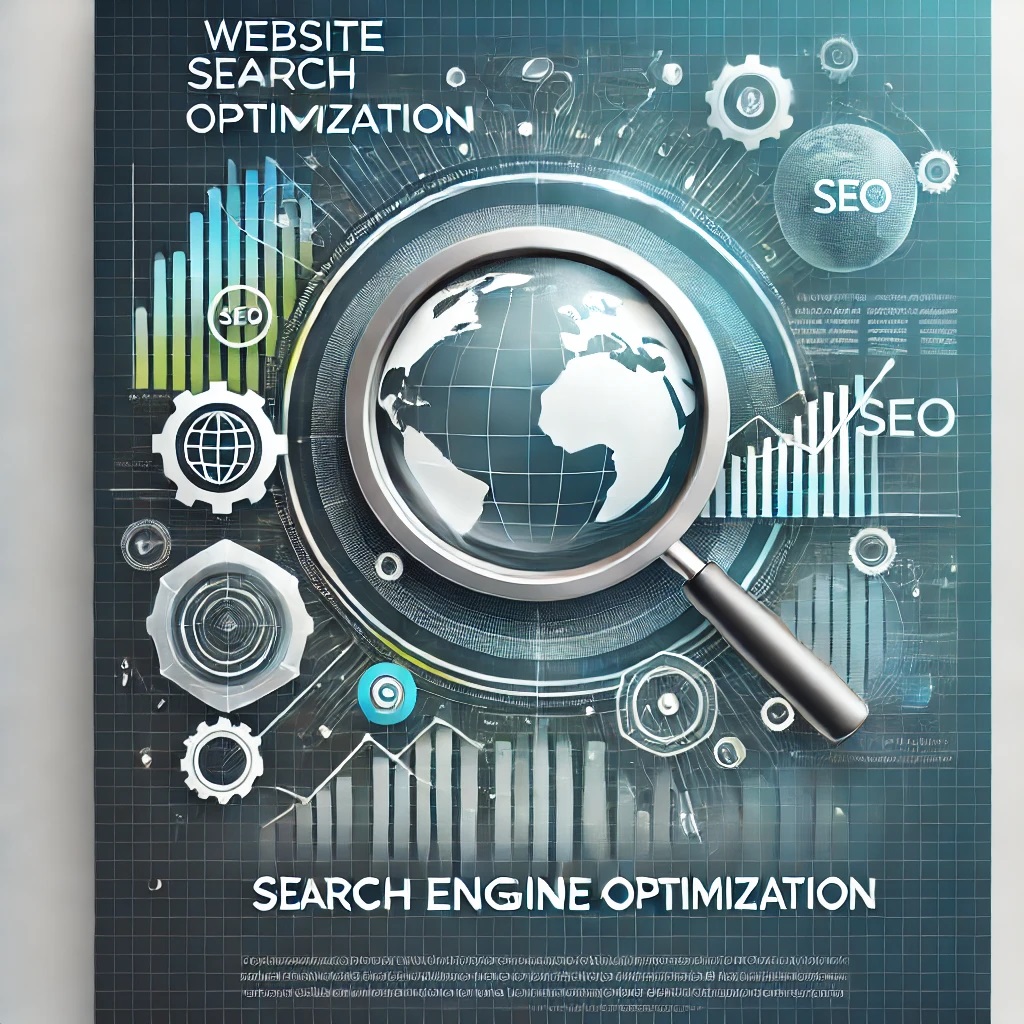
Website SEO (Search Engine Optimization) refers to the practice of optimizing a website to improve its visibility in search engine results pages (SERPs). The goal is to attract more organic (non-paid) traffic by making the website more relevant and authoritative for search engines like Google, Bing, and Yahoo.
Key Components of Website SEO
- On-Page SEO
Focuses on optimizing elements within the website itself, including:- Keywords: Research and use relevant keywords in titles, headers, and content.
- Meta Tags: Optimize meta titles and descriptions for better click-through rates.
- Content Quality: Create valuable, informative, and engaging content.
- URL Structure: Use clean, descriptive URLs (e.g.,
www.example.com/seo-tips). - Internal Linking: Link related pages to improve navigation and ranking.
- Off-Page SEO
Focuses on external factors that influence rankings:- Backlinks: Earn high-quality links from other reputable websites.
- Social Signals: Promote content on social media for increased visibility.
- Brand Mentions: Gain mentions across the web, even without links.
- Technical SEO
Deals with the technical aspects of the website:- Site Speed: Ensure fast loading times.
- Mobile-Friendliness: Optimize for mobile devices.
- Crawlability: Make it easy for search engines to crawl and index your site.
- Structured Data: Use schema markup for better SERP features.
- SSL Certificate: Secure the site with HTTPS.
- Local SEO
Focuses on optimizing a website for local searches, often important for small businesses:- Google My Business: Optimize your profile for local visibility.
- Local Keywords: Target location-specific keywords.
- NAP Consistency: Ensure Name, Address, and Phone number are consistent across platforms.
- Content SEO
Involves creating and optimizing content for both users and search engines:- Write long-form, in-depth articles.
- Use headers (H1, H2, H3) to organize content.
- Include multimedia like images, videos, and infographics.
Why Is Website SEO Important?
- Increases Organic Traffic: Higher rankings mean more visitors.
- Boosts Credibility and Trust: Websites that rank well are often seen as trustworthy.
- Improves User Experience: SEO involves optimizing for usability and navigation.
- Cost-Effective: Organic traffic is free, unlike paid ads.
- Provides Long-Term Results: Unlike ads, SEO efforts have a lasting impact.
Tools Commonly Used in Website SEO
- Google Analytics: Tracks website performance and user behavior.
- Google Search Console: Monitors and optimizes your presence in Google SERPs.
- Ahrefs / SEMrush: For keyword research, backlink analysis, and competitor insights.
- Yoast SEO / Rank Math: WordPress plugins for on-page SEO.
- PageSpeed Insights: Evaluates website speed and suggests improvements.